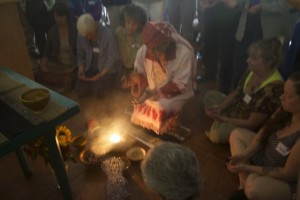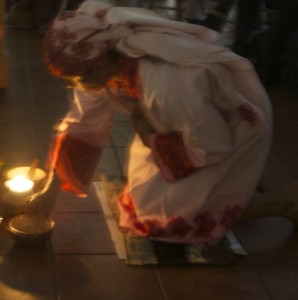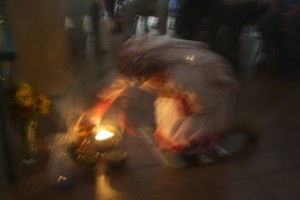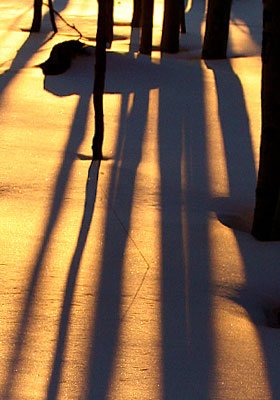The smoke from the copal grew thicker in the room, as Apab’yan fed the small container fire with the granules of incense, and his prayers. People seated around him and behind him prayed too, mesmerized now by the hypnotic chanting in the Mayan language, punctuated by English phrases so we could all track where the prayers were being directed.
The room was darkened in order to suggest the atmosphere of the caves where this water ceremony is usually performed. A bowl of water resting on the table received the blessing, and participants would eventually be offered sips of it, as in communion. Finally, roses were dipped into the water and used to shake drops of water on all those gathered.
It was a potent blessing, because the intimacy and power of ritual transcends cultures, language differences and even philosophical details. Spirit is Spirit in any language. And the language of Spirit is ceremony.
Apab’yan Tew a Guatemalan Maya Daykeeper and spiritual guide, came to the U.S. as a guest of Kenosis Spirit Keepers, a non-profit headed by Carla Woody. Her spiritual travel programs bring North American people together with indigenous leaders. Whether in Hopi land, Peru, Bolivia, or Chiapas, Mexico, the traveler experiences first hand the reality that we are one.
In this case, a crowd of about fifty gathered at St. Philips in the Hills Episcopal Church in Tucson for a special event co-sponsored by Tacheria Interfaith Spirituality Center. Apab’yan taught us a bit about the Maya worldview, and then graced us with a water ceremony never before performed outside the mountain caves where foreigners are not permitted.
And what was the result? Why do indigenous people continue to do ceremony, and what can we gain from participating?
First, there is a palpable power, a felt presence. It is both humbling and empowering. It is a mystery, summoned by a humble shaman.
Ritual and ceremony go beyond words. Through work with the elements: fire, water, smoke, and sacred objects, an atmosphere of mystery took over our rational minds and transported us to another way of being. The sounds of singing and chanting evidently impressed the birds outside, since they began to sing in response.
Culturally we are starved for ritual and ceremony and for experiences of awe and wonder. Indigenous people from all over the world continue to make such experiences central to their lives. We can learn from this.
You don’t have to be a daykeeper or a shaman or a spiritual guide to perform ceremony. Create a simple ritual you can do in your own home or in the back yard. Choose a surface that will serve as an altar. Decide how you’ll make sound: with a drum, a rattle, or with your voice. How will you add fire? A candle will do. And water? Just fill a small bowl. Place stones or sacred objects of yours in an arrangement. Say a prayer. Sing a song of praise.
Apab’yan teaches that this is a way of giving back, when we have received so much. He learned this from his village in the Guatemalan highlands, where people have very little. Gratitude doesn’t cost a cent, but it’s a way to repay whatever spirits you’d like to thank for all your blessings.



